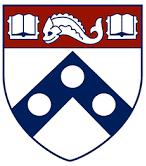EXECUTIVE DIRECTOR
Bibliographical Society of America
The Bibliographical Society of America (BSA) seeks qualified applicants for the position of Executive Director. This is a new, full-time position that will provide dynamic leadership to one of the country’s oldest and most important humanistic societies.
As the BSA looks to revitalize itself and play a more visible role in the larger scholarly community, the Executive Director will bring creativity, imagination, and energy to this new strategic direction. The Executive Director will work closely with the leadership of the BSA to expand and diversify membership, enhance programing, create a more robust communications profile, and forge new partnerships with other scholarly organizations and societies. In addition, the Executive Director will work with BSA leadership on major issues of planning, finance, fundraising and development, and the general business of the Society.
This is an exciting opportunity for someone with proven initiative, a demonstrated knowledge of the field, and a desire to further the mission and values of the BSA. The successful candidate will bring to the position a combination of scholarly and administrative skills that will uniquely position her/him to fulfill the challenges of the job.
Required qualifications include a graduate degree (Ph.D. preferred) in a relevant field and/or ALA-accredited MA in Library and Information Science; a minimum of 3 years of administrative experience, including budgeting, events management, and project planning; demonstrated ability to communicate effectively orally and in writing; and experience in program development and evaluation.
This position does not require relocating to the greater New York metropolitan area. It has been conceived as a telecommuting position, with occasional travel to New York and elsewhere for programs and meetings. Some weeks may require flexible scheduling for evening or weekend events. Compensation: $65,000 or greater depending on experience and qualifications, plus retirement benefits, three weeks paid vacation, and one and one-half sick days per month.
To apply: Send electronically a cover letter and CV with the names and contact information of three references to Jennifer Lowe: jennifer.lowe@slu.edu. The Search Committee will begin reviewing applications on 1 April 2018. Starting date for the position is 1 September 2018.
Founded in 1904, the BSA is an international scholarly organization that fosters the study of books and other textual artifacts in traditional and emerging formats. The Society is committed to the field of bibliography as a critical interpretive framework for understanding books and other textual artifacts, and for bibliography’s enduring relevance to textual analysis. The BSA pursues this mission by hosting public programs, funding scholarly research, conferring awards, issuing publications (principally the Papers of the Bibliographical Society of America), and collaborating with other learned societies and cognate organizations. The BSA welcomes a diverse membership, including faculty and students, librarians and conservators, collectors and booksellers. For more information about the BSA, please visit our website: https://bibsocamer.org/.

 The 94th Annual Meeting of the Medieval Academy of America will take place in Philadelphia on the campus of the University of Pennsylvania, from 7-9 March 2019. The meeting is jointly hosted by the Medieval Academy of America, Bryn Mawr College, Delaware Valley Medieval Association, Haverford College, St. Joseph’s University, the University of Pennsylvania, and Villanova University.
The 94th Annual Meeting of the Medieval Academy of America will take place in Philadelphia on the campus of the University of Pennsylvania, from 7-9 March 2019. The meeting is jointly hosted by the Medieval Academy of America, Bryn Mawr College, Delaware Valley Medieval Association, Haverford College, St. Joseph’s University, the University of Pennsylvania, and Villanova University.

